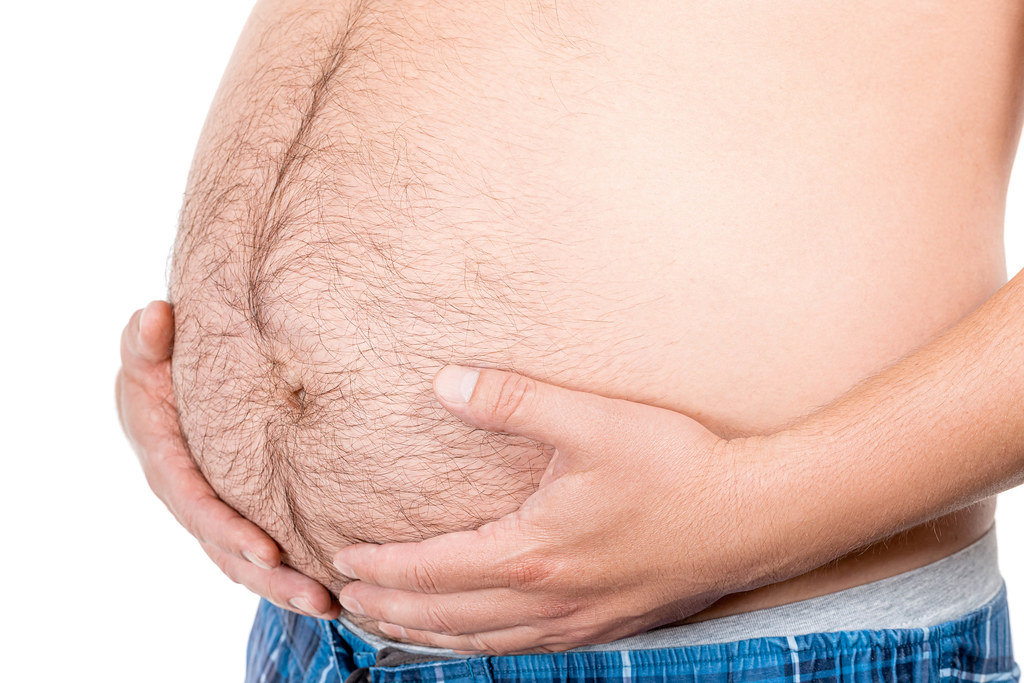Summary
– Hard and swollen belly: common causes
– Treatment of swollen and hard stomach
When you complain of having a swollen and hard belly, it is, in most cases, a symptom of constipation. What are the causes? How to reduce these symptoms? This post answers you right away!
Swollen and hard stomach: common causes
The slowing down of intestinal transit causes the sensation of a swollen and hard belly caused by intestinal bloating. This means gas having difficulty reaching the anus because of stagnant matter, causing a swelling of the belly, and hardening of the fecal matter, sometimes palpable at the level of the abdomen, causing a hard belly.
Together, these symptoms are constipation or complete cessation of bowel movements, referred to as intestinal obstruction (more serious).
Causes of constipation
Constipation is defined as less than 3 bowel movements per week and difficulty evacuating. It is occasional and physiological in certain circumstances, for example, lots of bed rest, too much travel, last months of pregnancy, hemorrhoids, or anal fissure.
It can also be related to the side effects of certain medications such as morphine-type analgesics, certain antidepressants, certain anticonvulsants, a diuretic, or even iron supplementation treatments.
In other cases, constipation is related to the disease:
– metabolic diseases including diabetes, hypothyroidism, and hypercalcemia ;
– diseases that reduce the size of the intestine: abdominal tumor or IBD (chronic inflammatory bowel disease like ulcerative colitis and Crohn’s disease);
– neurological diseases such as Parkinson’s disease.
Finally, stress is a predisposing factor for transit disorders with alternating constipation and diarrhea, called irritable bowel syndrome.
Causes of bowel obstruction
Intestinal obstruction is characterized by a complete stop of transit (matter and gas). It is a potentially serious condition requiring emergency digestive surgery. During an intestinal obstruction, the stomach is very hard, described as a “wooden stomach.” It is swollen and very painful. All the causes of constipation already mentioned are likely to be complicated by a bowel obstruction if they persist.
To these complications, we must add:
– intestinal “knots”: postoperative bridles, adhesions, volvulus or strangulated hernia ;
– trauma to the intestine;
– certain severe diseases lead to bowel paralysis: appendicitis, renal colic, pleuropulmonary infection, myocardial infarction, ectopic pregnancy, or even ovarian torsion or ovarian cyst…
Remember: the suspicion of an intestinal obstruction always requires an urgent medical consultation.
Treatment of swollen and hard belly

Apart from the emergency represented by intestinal obstruction, specific measures can prevent a hard and swollen belly sensation.
Diet rich in fiber
From a dietary point of view, a few simple rules can help improve intestinal transit. The first thing to do is to adopt a high-fiber diet (more than 15 g/day), including :
– vegetables (green peas, beans, soybeans, lentils, chickpeas, chard, popcorn) ;
– fresh fruit (pears and apples with skin, mangoes, raspberries, strawberries)
– dried fruits and nuts (prunes, walnuts, almonds, pistachios, peanuts, cashews)
– cereals (wheat and wholemeal bread, quinoa, bulgur, barley…).
Digestive discomforts such as a hard and swollen stomach are sometimes linked to inadequate hydration, especially in children and the elderly. Remember to drink more than one liter of water per day.
Finally, physical exercise and all the relaxation activities that can reduce stress have a beneficial effect on transit.
If you find it challenging to adopt the right reflexes daily, do not hesitate to consult a dietician.
Remember: stewed fruit, fruit juice, and coffee have a powerful laxative effect.
Medicated treatment
If you still have a swollen and hard stomach associated with persistent constipation despite the diet, the use of simple laxatives will relieve you in the vast majority of cases. The most commonly used molecule is Macrogol. When oral laxatives are not enough, we use enema-type laxatives by rectal route.
Painful hemorrhoids or anal fissures can make constipation worse. It is, therefore, necessary to apply analgesic cream and adapted suppositories.
More rarely, constipation requires perineal re-education through physical therapy (in children, for example). Recourse to surgery remains very exceptional, reserved for patients with a neurological disorder.
In all cases, if the sensation of a hard and swollen belly persists, talk to your general practitioner.
Treatment with aromatherapy
Essential oils (EO) can calm the pain, promote the evacuation of gas and limit fermentation by exerting an anti-inflammatory, anti-infectious and spasmolytic action (it relieves intestinal spasms).
Here is an interesting formulation to relieve a swollen and hard stomach:
– Mix in a 15 ml bottle:
◦ 30 drops of cardamom EO,
◦ 15 drops of peppermint EO.
– Top it off with macadamia or apricot oil.
– Shake vigorously.
– Apply a dab of this mixture (10 to 20 drops) to the abdomen two to three times a day for 5 days (repeat as needed).
It is advisable to accompany this preparation with vegetable coal or green clay.


